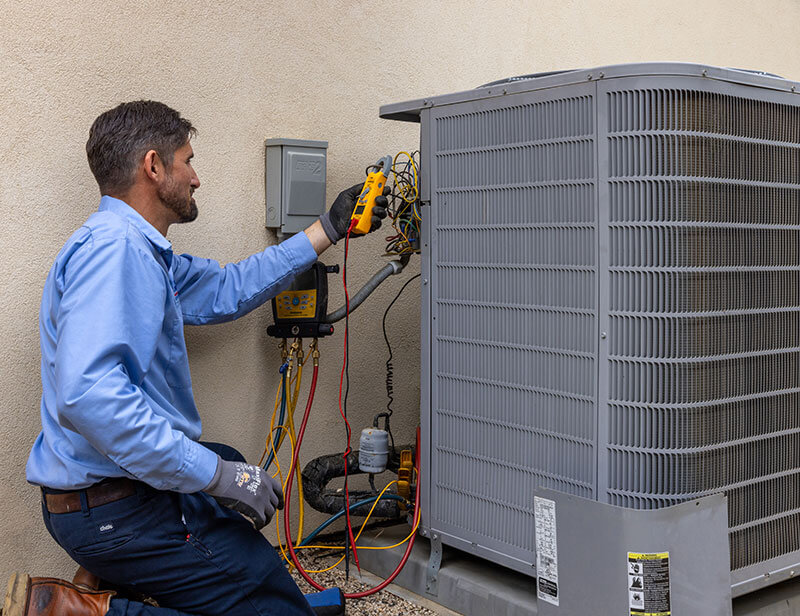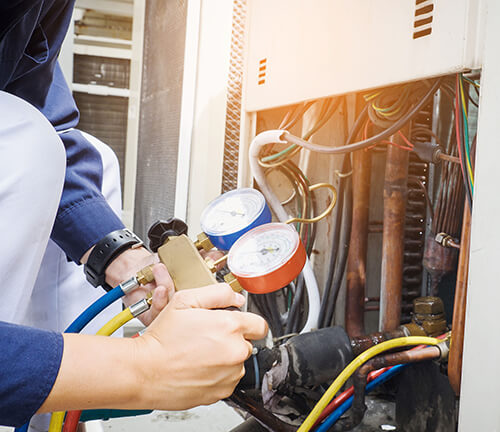Energy-Efficient HVAC Equipments to Save on Energy Expenses
As energy expenses proceed to increase, the value of energy-efficient HVAC systems comes to be significantly evident. These systems not just guarantee considerable financial savings on utility costs however also add to a much more lasting future by reducing power intake.
Advantages of Energy-Efficient Heating And Cooling Solutions
Energy-efficient HVAC systems supply many advantages that prolong past mere expense financial savings. One considerable benefit is the minimized environmental effect. By consuming less power, these systems add to lower greenhouse gas discharges, aiding to deal with environment adjustment and promote sustainability. This straightens with enhancing social needs for environmentally friendly methods in household and commercial settings.
In addition, energy-efficient HVAC systems often supply enhanced convenience levels. Much of these systems feature sophisticated technology that enables better temperature control and improved air quality (DMAKS HVAC). This results in a healthier indoor atmosphere, which is especially crucial for individuals with allergies or breathing issues
Additionally, investing in energy-efficient heating and cooling systems can improve residential or commercial property value. As even more customers prioritize energy efficiency, homes and structures equipped with these systems might draw in greater quotes in the property market.
Kinds Of Energy-Efficient HVAC Options
Exactly how can house owners and services select one of the most ideal energy-efficient heating and cooling choices for their needs? The marketplace uses a variety of energy-efficient heating and cooling systems, each created to boost convenience while reducing energy usage.
One choice is the variable refrigerant circulation (VRF) system, which effectively regulates the temperature in multiple areas within a building. This system adjusts its refrigerant circulation to match the desired temperature, leading to substantial energy financial savings.
One more popular selection is geothermal heat pumps, which make use of the planet's steady temperature level to warm and awesome rooms. By transferring warmth to and from the ground, these systems demonstrate impressive effectiveness, particularly in moderate environments.
Additionally, ductless mini-split systems give an energy-efficient alternative for homes doing not have ductwork. These systems permit zone-specific cooling and heating, lowering power waste in empty areas.
Finally, high-efficiency heaters and ac system, with sophisticated SEER and AFUE ratings, provide dependable climate control while eating much less energy than standard versions. By evaluating these choices, property owners and businesses can choose a HVAC system tailored to their certain requirements and power efficiency goals.
Secret Attributes to Think About

Next, check out the type of compressor made use of in the system. DMAKS HVAC. Variable-speed compressors can change their result to match the heating or cooling down need, causing improved comfort and power cost savings contrasted to single-speed designs. In addition, try to find systems equipped with wise thermostats that use programmable settings and remote accessibility, permitting far better control over energy usage
One more important attribute is the system's air purification ability. High-efficiency filters can enhance indoor air high quality and minimize energy intake by making sure the system runs effectively. Moreover, think about the type of cooling agent utilized; contemporary systems commonly utilize green cooling agents that have a reduced ecological effect.
Last but not least, make certain that the system works with zoning technology, which enables for tailored temperature level control in different locations of your home, enhancing comfort while minimizing power usage.
Tips for Choosing the Right System


Next, consider energy efficiency ratings, especially the Seasonal pop over here Energy Efficiency Ratio (SEER) for cooling systems and the Yearly Fuel Usage Efficiency (AFUE) for heating systems. Greater scores suggest greater performance, click to investigate which can lead to substantial financial savings on energy bills with time.
In addition, review the kind of HVAC system that finest fits your lifestyle and spending plan. Options consist of central air, ductless mini-splits, and heatpump, each with its very own collection of advantages and disadvantages.
Do not overlook the significance of proper setup and sizing; an incorrectly sized system can result in ineffectiveness and boosted wear. Last but not least, speak with an expert a/c contractor to obtain professional recommendations customized to your home's special requirements. This detailed approach will certainly make certain that you choose an energy-efficient HVAC system that fulfills your requirements and spending plan effectively.
Upkeep for Optimal Effectiveness
Once the right heating and cooling system remains in place, continuous upkeep becomes crucial to making certain optimum effectiveness and long life. A well-kept system runs better, resulting in reduced energy intake and minimized energy costs. Routine inspections and tune-ups should be arranged at the very least twice a year-- when before the air conditioning season and once before the heating season.

Homeowners ought to additionally be vigilant concerning checking their a/c system's performance. Uncommon noises, changing temperature levels, or raised power bills can indicate underlying concerns that need instant interest. By dealing with DMAKS HVAC these worries without delay, home owners can prevent expensive repairs and prolong the life-span of their systems.
Investing in a maintenance strategy with a qualified professional not just boosts efficiency yet additionally offers peace of mind, understanding that the system is running at its finest. DMAKS HVAC. Normal maintenance is consequently essential for maintaining energy effectiveness and reducing overall functional costs
Verdict
In final thought, energy-efficient HVAC systems present a feasible option for decreasing utility costs while improving comfort and air top quality. By including innovative modern technologies and alternatives such as geothermal warm pumps and ductless mini-splits, residential property owners can accomplish considerable energy cost savings and add to environmental sustainability. Cautious consideration of system functions and continuous upkeep further guarantees optimal efficiency, making energy-efficient systems a prudent investment for both economic and environmental benefits.